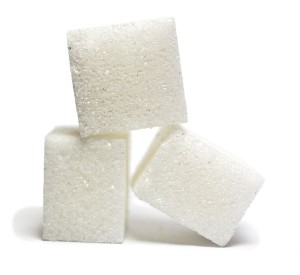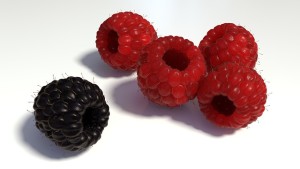Sugar Deception

Deception is nothing new-it has gone on for centuries.
Just take the simple topic of sugar, for instance. The facts about sugar have been buried under the rug for years for fear that it could hurt the sugar and processed food industry. About 50 years ago, the Sugar Research Foundation funded Project 259 and found a link between sugar intake to CVD and bladder cancer. But you didn’t know this because when they discovered these results, the research was cut short, and findings were never published. In 2014, a mouse trial found that the mice consuming a high sugar diet had a greater risk of breast cancer; however, the results were brushed aside, stating no valid link between the two. Sadly, it was discovered that in the original Project 259, the Harvard scientists were paid off to make sugar appear less unhealthy than it really is and instead shifted the focus to fat in the diet. (Born, 2021)
Thus, much like since 2020, if sugar is so healthy, why pay off scientists and bury information under the rug?
Maybe instead of big pharma and big Cancer organizations playing up mammograms, they encouraged low sugar intake as a preventative measure?
Reasons Why You Should Avoid Processed Sugar
• There is a link between a processed food diet and disease-most processed foods are high in refined carbs, void of nutrients, and these carbs convert rapidly into sugar in your bloodstream
• Sugar is the underlying factor in diabetes, non-alcoholic fatty liver disease, and obesity, not saturated fats like you led to believe
• Healthy weight-some Some people think that it is okay to eat as much sugar as they want because they are not overweight. Even if you don’t gain weight, sugar will raise triglyceride levels, total cholesterol and increase blood pressure
• Fructose-this is the worst kind of sugar because it has to be metabolized in your liver instead of in your intestines like glucose.
o Your liver turns fructose into liver fat which causes metabolic problems.
o Excess fructose shuts down the part of your brain that tells you when you are full, thus making overeating likely.
Your Liver can only handle small quantities of fructose at any given time, so excess fructose is stored as body fat instead of being burned as energy.
o When you consume fructose in liquid forms, such as a soda, the effects not only speed up but are also magnified.
o Fructose is not the preferred energy source for muscles or the brain
• It is more fat-producing than glucose: basically, fructose will pack on the pounds!
• Elevated insulin levels (caused by consuming too much processed sugar) boost cancer tumors by directing cancer cells to consume glucose.
• Some cancers contain insulin receptors, harnessing glucose to grow and spread. For these cancers, eating sugar is like putting fuel on the fire.
• If you have cancer, it is wise to remove all excess sugar from your diet: do your homework on this subject as hospitals will still give cancer patients foods loaded with sugar. Yes, Ensure ( a standard product given to cancer patients) is filled with “junk” ingredients, including sugar. Read labels!
• Sugar is related to dementia and Alzheimer’s disease
o There is still some debate however among neurologists and other medical professionals. Still, research shows that sugar and other highly refined carb-type foods in excess age the brain and increase the risk of dementia.
o When you consume sugar in excess, it forms toxic compounds called advanced glycations end products (AGES). Yes, sugar ages you!
o Too much of the fast-releasing glucose (which happens when you eat refined carbs and sugary processed foods) overloads the brain cells, which are less capable of handling this overload than the muscle cells. (A high sugar, processed food diet can cause or contribute to depression)
o So, the more sugar and refined carbs you eat, the higher your insulin levels will be, and then more peaks in your blood sugar levels.
o These swings from high to low in your blood sugar will leave you tired, unable to concentrate, and eventually, over time, it can lead to fading memory.
Over time your body will become less responsive to its insulin and will develop insulin resistance which is the precursor to diabetes
And many are calling Alzheimer’s “type 3” diabetes.
Sugar Hidden in Plain Sight
Read past the bold words on the front of the label. That is what the manufacture wants you to see-read the ingredients label. For instance, in a popular kid’s gummy vitamin, the first two ingredients are corn syrup and sucrose. Thus, the main ingredient is sugar and is listed twice under different names to make it look like it doesn’t contain as much as it does.
- Often, we don’t realize how much-added sugar is in our foods. Sugar may be on the label numerous times using different words
- 3/4th of all processed/packaged foods contain some sugar. The best you can do is read labels and use the 80/20 rule-make 80% of your diet whole foods and leave 20% for the added processed food on occasion. Your body will thank you. The upper limit for the average person is 40 grams of added sugar per day (this is not sugar from fruits and vegetables). It is equal to 10 added teaspoons per day-this is still a lot, but most Americans consume well over 100 grams per day. (a can of your average soda contains 40 grams of sugar).
- Don’t be fooled by drinks and foods that look healthy. Some smoothie drinks in the store product aisle look like they would be so good for you. They contain mostly fruit and can have 50-70 grams of sugar for one bottle.
- Avoid dried fruit; although an endurance athlete may benefit from dried fruit on long events, and it can be great to take on hikes and backpacking trips, the average person sitting at their desk does not need it. It is a concentrated form of sugar. Eat the whole fruit instead.
- Did you know that those fast food french fries are not only addictive because of the salt but also because they are lightly covered in sugar as well.
There are 61 names for sugar.
(go to www.sugarscience.org for a complete list)
Common Names For Sugar
- Agave nectar
- Barley malt (and barley syrup)
- Brown sugar
- Cane sugar
- Sucrose
- Cane juice
- Caramel
- Corn sweetener
- Corn syrup
- HFCS (high fructose corn syrup)
- Maltodextrin
- Maltose
- Palm sugar
- Sucralose (artificial)
Sugar for Athletes
Athletes need glucose as a source of fuel for their muscles and as a source of energy. Athletes can meet all their glucose needs by eating starchy vegetables such as beets, carrots, sweet potatoes, and parsnips., along with fruits and other vegetables. They do not need many of the products that are on the store shelves. Some may be convenient, but typically they are loaded with fructose which is not the form that an athlete needs. Choose the proper form of sugar to support optimal athletic performance.
Athletes should keep this in mind when consuming added sugar:
Too much sugar
- Causes systemic inflammation in the body
- Lowers your immune system
- It makes you crave more and more
- Sugar will age your body and your brain
- Contributes to cancer and other diseases
- Fructose gets processed via the liver, and too much fructose is stored as fat on the body.
Natural Alternatives
If you are trying to eliminate sugar from your diet, try to reduce your processed sugar intake. If you eliminate sugar from your diet, you will also be eliminating very healthy choices such as some vegetables and fruits. These are the foods that you do want in your diet! You do need some sugar in your diet to fuel your muscles and keep your brain active. So choose whole foods for your sugar source! Beets, carrots, sweet potatoes, berries, apples, and bananas are a few examples. Other carb sources are also supported, such as whole grains such as quinoa and wild rice, beans, and legumes.
Fruit is still the better option than processed food because it contains fiber and other vital nutrients needed for our health. Because the fiber and additional nutrients do not cause the immediate spike in blood sugar, say, a donut would be void of other nutrients. However, it is easy to go overboard on the fruit-2 servings per day unless you are a very active person!
Use Instead:
Stevia Leaf to use as a sweetener. Not Truvia or Purevia, which are processed products and not stevia in their pure form. Use allulose for baking or small amounts of raw honey and pure grade B Maple syrup. Again, small portions. But these do contain some nutrients. Use these in meals and snacks that are not cooked or cooked below 115 degrees, as the heat will destroy the beneficial nutrients in these products.
Benefits of a Sugar-Free Lifestyle
• Just read the “effects of sugar” to know the benefits of a processed sugar-free lifestyle
• decreased cancer risk
• improved triglyceride levels
• manage weight/lose weight
• reduce diabetes risk
• healthy brain function
• reduce heart disease risk
• have more energy
• clearer more vibrant skin
Bottom Line
The natural sugar in your whole foods is a healthy part of the diet as long as you do not go overboard on the sugary fruit consumption such as mango and pineapple-filled smoothie every morning. Cutting out sugar in the diet is not an easy task. Especially when you have been living off a refined diet for years. You may not even realize all the ways sugar is sneaking into your diet. It is best to work with a professional who can help identify areas that need change.
Sources
Bauman, E. & Friedlander, J. (2014) Therapeutic Nutrition. Pengrove, CA: Bauman CollegeBorn, S. (2021). Sugargate. Hammer Nutrition. Endurance News, 126.
Ellison, S. (Set/Oct. 2015) Sugar. Why it sabotages our health. Onfitnessmagazine.com, vol. 16, no. 2.
Mercola, J. (7/25/15) Sugar Industry Secretes Exposed.
articles:mercola.com/






Leave A Comment
You must be logged in to post a comment.